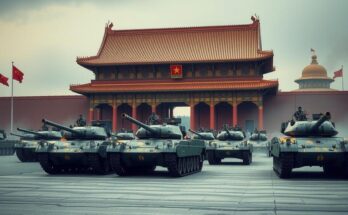Kazem Gharibabadi, Iran’s Deputy Foreign Minister, reported on a “frank and constructive conversation” with the IAEA Director General, discussing cooperation, unresolved issues, security, and sanctions reduction. He emphasized the need for independent IAEA action free from political pressure. Gharibabadi stressed Iran’s commitment to its obligations while protecting national interests and announced his upcoming visit to Vienna for further talks.
Kazem Gharibabadi, the Deputy Foreign Minister of Iran, announced via his personal account on the X social network that he had an “open and productive discussion” with the Director General of the International Atomic Energy Agency (IAEA). This meeting addressed several topics including the collaboration between Iran and the IAEA, the resolution of two pending issues, security measures at nuclear facilities, as well as current developments relating to nuclear matters and the lifting of sanctions.
During the discussion, Gharibabadi emphasized that Iran and the IAEA share a longstanding cooperative relationship, which he believes can facilitate the resolution of existing discrepancies if external political pressures on the Agency are alleviated. He urged the IAEA to maintain an independent, technical, impartial, and professional stance in its dealings.
Furthermore, Gharibabadi conveyed Iran’s commitment to engage with the IAEA while adhering to its safeguards obligations, all the while ensuring the protection of its national security interests. On the morning of the meeting, Foreign Ministry spokesman Esmaeil Baghaei confirmed that Gharibabadi would be traveling to Vienna for further discussions with IAEA officials.
In summary, Kazem Gharibabadi’s recent discussions with the IAEA’s Director General reflect Iran’s ongoing commitment to cooperative dialogue regarding nuclear issues. The Deputy Foreign Minister reiterated the importance of ending external pressures on the Agency to facilitate a more effective resolution of existing challenges while reinforcing Iran’s dedication to its national security and responsibilities within the framework of international safeguards.
Original Source: en.mehrnews.com




